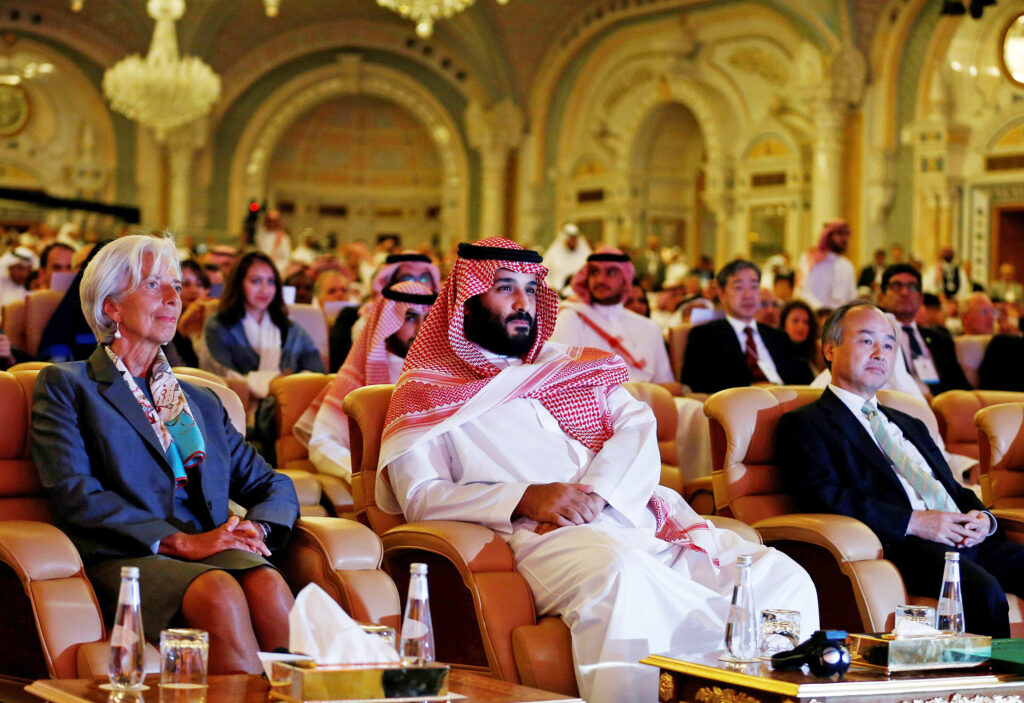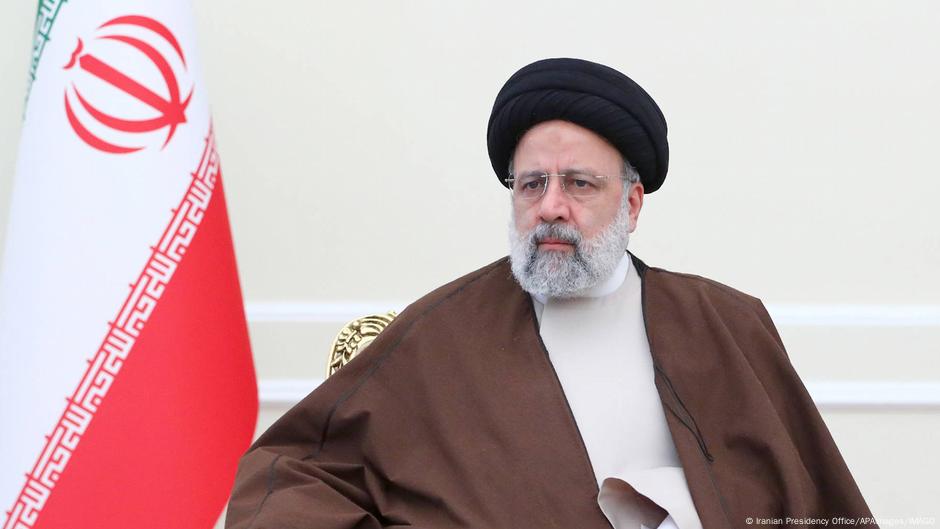Chinese media says that China and Russia are weaponizing gold. This is on the heels of China announcing additions to their gold holdings. Is this just signalling to the West or are they getting ready to actually do something significant?
You are using an out of date browser. It may not display this or other websites correctly.
You should upgrade or use an alternative browser.
You should upgrade or use an alternative browser.
Tin Foil Hats, Economic Reality and the Total Perspective Vortex
- Thread starter pmbug
- Start date
- Featured
Welcome to the Precious Metals Bug Forums
Welcome to the PMBug forums - a watering hole for folks interested in gold, silver, precious metals, sound money, investing, market and economic news, central bank monetary policies, politics and more.
Why not register an account and join the discussions? When you register an account and log in, you may enjoy additional benefits including no Google ads, market data/charts, access to trade/barter with the community and much more. Registering an account is free - you have nothing to lose!

Bank of England governor doubts digital pound as EU finance ministers support euro CBDC
(Kitco News) - European finance ministers expressing support for a retail version of the digital euro, while Bank of England (BoE) Governor Andrew Bailey expressed his doubts about the necessity of even a wholesale version of the digital pound shortly afterward.
www.kitco.com
Saudi Arabia is open to discussions about trade in currencies other than the US dollar, according to the kingdom’s finance minister.
"There are no issues with discussing how we settle our trade arrangements, whether it is in the U.S. dollar, whether it is the euro, whether it is the Saudi riyal," Mohammed Al-Jadaan told Bloomberg TV today in an interview in Davos, Switzerland.
...
GeorgeTakeiOhMy.gif
Last edited:
2022 was a very busy year for central bank digital currencies (CBDC), with the number of countries developing a CBDC rising to 114 by the end of December and representing 95% of global GDP. Some central banks, like those of Saudi Arabia and Tunisia, have chosen to focus their energies on the development of a wholesale central bank digital currency (wCBDC), designed to enable commercial banks and other financial institutions to settle transactions between one another. Others, such as Norway, Turkey and Russia, have opted for the more ambitious target of a retail CBDC (rCBDC) designed to be used at every level of the consumer economy.
Some countries, most notably China, advanced their CBDC programs dramatically over the course of the year, and are now solidly in the real-world implementation phase, while others like Indonesia have only begun to study their feasibility. As of January 2022, Ecuador is the only country to formally abandon their CBDC program to fully embrace the decentralized potential of cryptocurrencies like Bitcoin.
But as economist Richard Werner told Kitco News, much of the real action on CBDCs in 2023 will remain hidden from the public eye. "The CBDC project is a long-term project, and that means even if we don't see too many concrete, big moves forward in 2023, that doesn't mean nothing's happening right behind the scenes.
...

No crystal ball, but my expectation is:I wish I knew what this meant for us stackers. ...
Should CBDCs be well received - physical metal (stacks) will continue to be attractive liquid assets for storing wealth. Not much different from today
Should CBDCs be rejected - either fiat paper returns us back to day's status quo, or stacks become immensely popular for black market bartering
Back in September (post # 641) and October, news broke on some projects aiming to develop an alternative to SWIFT for CBDCs. Looks like there is another contender throwing a hat into the ring:
The ambitious new Universal Digital Payments Network (UDPN), which is designed to provide interoperability between fiat-backed stablecoins, central bank digital currencies (CBDCs), and regulated protocols was launched earlier today at the World Economic Forum in Davos, Switzerland.
UDPN was developed by Red Date Technology, which also developed BSN, China’s state-backed blockchain network, together with German IT solutions provider GFT, Japanese electronics firm TOKO and U.S. law firm DLA Piper.
“The purpose of UDPN is to investigate a potential alternative to existing payments systems by enabling interoperability between fiat-backed tokens of stablecoins and regulated protocols,” said Marika Lulay, CEO of GFT. “The decentralized approach and geographic breadth of participating firms, combined with the advanced technological solution deployed for these trials, set this network apart.”
...
UAE looking to settle non-oil commodity trading with India in Rupees.

 markets.businessinsider.com
markets.businessinsider.com
The UAE and India are in talks to use rupees to trade non-oil commodities in shift away from US dollar, report says
The move would build on an agreement signed in 2022, which aimed to increase trade excluding oil between the two countries to $100 billion.
Brazil and Argentina will this week announce that they are starting preparatory work on a common currency, in a move that could eventually create the world's second-largest currency bloc.
South America's two biggest economies will discuss the plan at a summit in Buenos Aires this week and will invite other Latin American nations to join.
The initial focus will be on how a new currency, which Brazil suggests calling the "sur" (south), could boost regional trade and reduce reliance on the U.S. dollar, officials told the Financial Times.
It would at first run in parallel with the Brazilian real and Argentine peso.
“There will be ... a decision to start studying the parameters needed for a common currency, which includes everything from fiscal issues to the size of the economy and the role of central banks," Argentina’s economy minister Sergio Massa told the Financial Times.
"It would be a study of mechanisms for trade integration," he added.
"I don’t want to create any false expectations. ... It's the first step on a long road Latin America must travel." ...
https://www.ft.com/content/5347d263-7f24-4966-8da4-79485d1287b4
h/t: https://gata.org/node/22400
- Messages
- 23,711
- Reaction score
- 4,349
- Points
- 288
Russia’s intentions are clarifying
Jan 26, 2023 · Alasdair MacleodWe have confirmation from the highest sources that Russia and the Shanghai Cooperation Organisation (SCO) are considering using gold for pan-Asian trade settlements, fully replacing dollars and euros.
In an article written for Vedomosti, a Moscow-based Russian newspaper published on 27 December, Sergey Glazyev, a prominent economic adviser to Vladimir Putin who is heading up the Eurasian Economic Union committee charged with devising a replacement for dollars in trade settlements sent a very clear signal to that effect. It appears he will drop earlier plans to design a new commodity-linked trade currency because it has been superseded.
More:
Chinese media says that China and Russia are weaponizing gold.
news broke on some projects aiming to develop an alternative to SWIFT
Long post addressing some current developments with reserve currency machinations:
ZeroHedge
ZeroHedge - On a long enough timeline, the survival rate for everyone drops to zerowww.zerohedge.com
UAE looking to settle non-oil commodity trading with India in Rupees.

The UAE and India are in talks to use rupees to trade non-oil commodities in shift away from US dollar, report says
The move would build on an agreement signed in 2022, which aimed to increase trade excluding oil between the two countries to $100 billion.markets.businessinsider.com
Russia and the Shanghai Cooperation Organisation (SCO) are considering using gold for pan-Asian trade settlements, fully replacing dollars and euros.
If all this stuff comes to pass and is shown to be workable, who is going to be buying US bonds so that our gov can still pay it's bills?
Will the gov start requiring all 401k's and ira's to be invested in gov bonds?
Keep On Stacking.I wish I knew what this meant for us stackers.
Anyone have a crystal ball?
Pay you bills with Fiat and try to pay them all off. Before the trapdoor opens on the US.
Buy Gold, Buy Silver, Buy Guns, Buy Ammo, BYE-Bye America.
The following doesn't really have any new information or analysis from what's been posted here, but it's nice to see that other people see the same things...

 alt-market.us
alt-market.us

A Dollar Collapse Is Now In Motion – Saudi Arabia Signals The End Of Petro Status - Alt-Market.us
By Brandon Smith The decline of a currency’s world reserve status is often a long process rife with denials. There...
 alt-market.us
alt-market.us
The second-largest currency bloc in the world began taking shape in South America this week, and the world’s foremost economic minds are baffled.
Brazil’s and Argentina’s presidents confirmed their plan to create a common currency provisionally called the “sur” in a joint op-ed published in Argentinean newspaper Perfil last Saturday. Brazil’s newly inaugurated President Luiz Inácio Lula da Silva arrived in Buenos Aires Monday for a summit with his Argentinean counterpart President Alberto Fernández, where the two will discuss strengthening trade ties as well as plan the new currency bloc, which other Latin American countries are being invited to join.
“We decided to advance discussions on a common South American currency that can be used for both financial and commercial flows,” the two leaders wrote in their op-ed, adding that a common currency would shield both countries against external forces and vulnerabilities. On Monday, Brazil President Lula told reporters the common currency would help reduce the region’s reliance on the U.S. dollar by facilitating trade.
...
“I’m surprised by idea of a common currency for Brazil & Argentina,” former U.S. Treasury Secretary Larry Summers wrote on Twitter Monday, adding that the plan was “highly problematic” given the economic differences and lack of political alignment between Brazil and Argentina, shared run-ins with populist political movements, and issues with fixed exchange rates.
Summers conceded he is no specialist in Latin American economies and invited other experts to comment, but even developmental economists and authorities in South American economies have been scratching their heads at the move.
“This is insane,” Olivier Blanchard, a French economist and former chief economist for the International Monetary Fund, wrote on Twitter Sunday, while José De Gregorio, a Chilean economist and the country’s former minister for the economy and governor of its central bank, called the idea a “total waste of time” on Monday.
“The announcement of a single currency is the most absurd thing I have heard and not very credible,” De Gregorio told local outlet Radio Infinita. He compared the plan unfavorably to the euro, which unlike in Latin America began with a “very deep economic union” between countries. He also warned that Brazil risked unsettling its monetary policy by integrating its currency with Argentina.
...
Some of the world’s top economists have weighed in on Argentina and Brazil’s plan for a common currency: ‘This is insane’
Economists don't see Brazil and Argentina's common currency idea panning out.
~~~
Russian Foreign Minister Sergey Lavrov said on Wednesday that Brazil, Russia, India, China, and South Africa – BRICS countries – will discuss creating a common currency at the group's forthcoming summit this August in South Africa.
"Serious, self-respecting countries are well aware of what is at stake, see the incompetence of the 'masters' of the current international monetary and financial system, and want to create their own mechanisms to ensure sustainable development, which will be protected from outside dictates.
"It is in this direction that the initiatives that have been voiced recently ... about the need to think about creating our own currencies within the framework of BRICS," he told a news conference after a meeting with Angolan President Joao Lourenco in the capital Luanda.
...

Russian FM says BRICS group to consider common currency
Lavrov says idea will be discussed at upcoming summit this August in South Africa - Anadolu Agency
Roubini says dollar to lose world reserve currency status over the next decade:

 news.google.com
news.google.com
h/t: https://gata.org/node/22421
A bipolar currency regime will replace the dollar’s exorbitant privilege
The greenback is bound sooner or later to feel the effects of intensifying geopolitical rivalry between the US and China
Nouriel Roubini
...
Moreover, a reserve currency country needs to accept — as the US long has — permanent current account deficits in order to issue enough of the liabilities held by non-residents as a counterpart. Finally, such sceptics argue that all attempts to create a multipolar reserve currency regime — even an IMF Special Drawing Right basket that includes the renminbi — have so far failed to replace the dollar.
These points may once have had some validity, but in a world that will be increasingly divided into two geopolitical spheres of influence — namely those surrounding the US and China — it is likely that a bipolar, rather than a multipolar, currency regime will eventually replace the unipolar one.
Complete exchange rate flexibility and international capital mobility is not necessary in order for a country to achieve reserve currency status. After all, in the era of the gold-exchange standard the dollar was dominant in spite of fixed exchange rates and widespread capital controls.
And while China may have capital controls, the US has its own version that may reduce the appeal of dollar assets among foes and relative friends. These include financial sanctions against its rivals, restrictions to inward investment in many national security-sensitive sectors and firms, and even secondary sanctions against friends who violate the primary ones.
In December, China and Saudi Arabia conducted their first transaction in renminbi. And it is not farfetched to think that Beijing could offer the Saudis and other Gulf Co-operation Council petrostates the ability to trade oil in RMB and to hold a greater share of their reserves in the Chinese currency.
It is likely that the GCC countries, as well as many other emerging market economies, may soon start accepting such Chinese offers given that they do a great deal more trade with China than the US. Also, there is a clear so-called Triffin dilemma in a currency regime in which the reserve country runs permanent current account deficits that will eventually undermine its reserve status as the growth in its international liabilities becomes unsustainable.
Critics question whether the currency of a country running a persistent current account surplus can ever achieve global reserve status. But China may in any case be moving towards a growth model less dependent on trade surpluses.
It is also an anachronism that the US, whose share of global gross domestic product has halved to 20 per cent since the second world war, still accounts for at least two-thirds of all so-called vehicle currency transactions. The current system makes emerging market economies financially and economically vulnerable to changes in US monetary policy driven by domestic factors such as inflation.
Finally, new technologies including CBDCs, payment systems such as WeChat Pay and Alipay, swap lines between China and other countries, and alternatives to Swift, will hasten the advent of a bipolar global monetary and financial system. For all these reasons, the relative decline of the US dollar as the main reserve currency is likely to occur over the next decade. The intensifying geopolitical contest between Washington and Beijing will inevitably be felt in a bipolar global reserve currency regime as well.
Google News
Comprehensive up-to-date news coverage, aggregated from sources all over the world by Google News.
 news.google.com
news.google.com
h/t: https://gata.org/node/22421
I just hope I'm around to guide my family through it.Roubini says dollar to lose world reserve currency status over the next decade:

Google News
Comprehensive up-to-date news coverage, aggregated from sources all over the world by Google News.news.google.com
h/t: https://gata.org/node/22421
Indian refiners have begun paying for most of their Russian oil purchased via Dubai-based traders in United Arab Emirates dirhams instead of U.S. dollars, four sources with knowledge of the matter said.
...
Previous attempts by Indian refiners to pay traders for Russian crude in dirhams through Dubai banks failed, forcing them to switch back to the U.S. currency.
But India's top bank, the State Bank of India (SBI), is now clearing these dirham payments, the sources told Reuters, providing details of transactions that have not previously been reported.
The SBI, which has overseas branches including in the United States, did not respond to requests for comment.
...

Exclusive: Indian refiners pay traders in dirhams for Russian oil
Indian refiners have begun paying for most of their Russian oil purchased via Dubai-based traders in United Arab Emirates dirhams instead of U.S. dollars, four sources with knowledge of the matter said.
Anonymous sources, so it could be total bullshit.
The Bank of England has released a new consultation paper that outlines the goals of its digital pound project and pitches the idea of creating a “new form of digital money for use by households and businesses for their everyday payments needs.”
...
Based on the design outlined in the paper, the central bank would be the sole issuer of a digital pound, which would be accessible to individuals and businesses via smartphones or cards. Wallets would be anonymized on the central bank's ledger to address privacy concerns and the digital currency would be non-programmable, meaning authorities can't control how people spend their money.
“The Bank will not implement central bank-initiated programmable functions,” a separate technical working paper said. “Instead, the Bank would provide the necessary infrastructure for the private sector to implement programmability features for users. Those features would require user consent.”
The consultation paper is meant to pitch the idea of a digital pound to the public and solicit comments on the proposed design to help the central bank determine if the creation of a digital pound is warranted. The ultimate goal of the paper is to help increase public engagement and work to enhance public trust in the event that a digital pound is launched.
...
Bank of England unveils the consultation paper for its digital pound project
The BoE has released a consultation paper for the digital pound, which outlines its goal of creating a new form of digital money for use by households and businesses.
www.kitco.com
Link to paper:
"Wallets would be anonymized on the central bank's ledger to address privacy concerns and the digital currency would be non-programmable, meaning authorities can't control how people spend their money."
Yes, for now. To get people to use it, it'll have to have anonymous wallets and be non-programable. Those things will come later on as a result of some crisis, either real or conjured up by the authorities as an excuse to start implementing such things.
...but only after it's been widely adopted and people rely on it.
It's called mission creep. Things start out one way, but then morph into something else. It is in fact a large part of the reason as to why our government is the way it is today.
Yes, for now. To get people to use it, it'll have to have anonymous wallets and be non-programable. Those things will come later on as a result of some crisis, either real or conjured up by the authorities as an excuse to start implementing such things.
...but only after it's been widely adopted and people rely on it.
It's called mission creep. Things start out one way, but then morph into something else. It is in fact a large part of the reason as to why our government is the way it is today.
BRICS expansion may not happen quickly:
South China Morning Post said:... it may be noted that Algeria, Argentina, and Iran have applied to join BRICS. They are not the only potential new BRICS members as Afghanistan, Egypt, Indonesia, Saudi Arabia and Turkey are also interested in becoming members.
In a further demonstration of growing interest in joining BRICS, the finance ministers of a number of countries - Kazakhstan, Nicaragua, Nigeria, Senegal, Thailand and the United Arab Emirates - attended last year's BRICS expansion dialogue.
...
BRICS has faced criticism, notably over its absence of clear, unifying principles and a shared vision for managing the global order.
Also, some of the current and potential members are facing internal issues such as unstable economies and diplomatic isolation, different levels of economic development and geopolitical rivalries. These could make it more challenging for governments to maintain power domestically and achieve cohesion within the bloc.
...
... For several potential members, various interlinked domestic crises need to be resolved before membership is possible. Meanwhile, for other potential members, regional rivalries need to be put aside to ensure membership.
When "Britannia Ruled the Waves" was over it took 30 years for the Pound to die out and for the USD to become "The World's Reserve Currency".
I expect the same time frame for the usd's demise.
When the 30 yr. clock began ? IDK
The US has already went bankrupt 5 times, Britain and France 8 times each.

 www.quora.com
www.quora.com
I expect the same time frame for the usd's demise.
When the 30 yr. clock began ? IDK
The US has already went bankrupt 5 times, Britain and France 8 times each.

The USA has gone bankrupt 5 times, the most recent being 1933. Could it happen again?
Answer (1 of 8): Of course it could happen. Most countries in the world have gone bankrupt multiple times over the centuries. Britain has gone bankrupt eight times, and France has also gone bankrupt eight times. However, it is not true bankruptcy because if a country has an army, nobody can seiz...
- Messages
- 15,675
- Reaction score
- 10,041
- Points
- 288
1971?When the 30 yr. clock began ? IDK
Re: BoE's digital pound:

 www.malaymail.com
www.malaymail.com
Britons would be limited to 20,000 digital pounds (US$24,000 or RM103,736) each if the country goes ahead with a digital currency, Bank of England (BoE) Deputy Governor Jon Cunliffe said yesterday.
...
“We propose a limit of between £10,000 and £20,000 per individual as the appropriate balance between managing risks and supporting wide usability of the digital pound,” Cunliffe said in a speech.
A limit of £10,000 would mean that three quarters of people could receive their pay in digital pounds as well as holding pre-existing balances in the same account, while a £20,000 limit would allow almost everyone to use digital pounds for day-to-day transactions, Cunliffe said.
Money above the cap would be “swept” into a customer’s commercial bank account given that a digital pound would not be a means for storing wealth, he told members of UK Finance, a banking industry body.
...

Britons face 20,000 digital pound cap under Bank of England plan
LONDON, Feb 7 — Britons would be limited to 20,000 digital pounds (US$24,000 or RM103,736) each if the country goes ahead with a digital currency, Bank of England (BoE) Deputy...
 www.malaymail.com
www.malaymail.com
Last edited:
'71 the Gold Door closed but IMO "S" started hitting the fan hard with the '08 Global Financial Crisis.1971?
This may be behind a pay wall if you've used your NYT "freebies", but there are other articles if you search "2008 Global Financial Crisis":
The OP of this thread details how momentum for the clock started building in the aftermath of the 2008 crisis. There was building sentiment then, but I think critical mass for inertia wasn't really achieved until the US started threatening countries with SWIFT lockouts.
It's just one more step along the path to ultimate failure that was originally embarked upon in '33.*I think critical mass for inertia wasn't really achieved until the US started threatening countries with SWIFT lockouts
What we're seeing is the journey down that path speeding up as it nears its end. Re: your swift comment. That is empire resorting to force in order to maintain that empire. It's just one of the steps that is taken in such circumstances.
* ever since then, it's been nothing but one band-aid solution after another for problems that all have their root in what was done to fix the supposed cause of the great depression.
Had gov always done what it was supposed to have been doing since its Founding, none of it would have had to happen, and we'd still be on a gold standard.
TheRealZed
Retired Sailor
- Messages
- 3,002
- Reaction score
- 3,608
- Points
- 298
"S" started hitting the fan hard with the '08 Global Financial Crisis.
Yeah, we started drinking to avoid the hangover about then. Only ever going to end one way... eventually. This time though? Or another 10 years? Hard to see but...
TheRealZed
Retired Sailor
- Messages
- 3,002
- Reaction score
- 3,608
- Points
- 298
The OP of this thread details how momentum for the clock started building in the aftermath of the 2008 crisis. There was building sentiment then, but I think critical mass for inertia wasn't really achieved until the US started threatening countries with SWIFT lockouts.
Like the fall of the USSR these things degrade slowly then it happens all at once. It gets very hard to say that any given point in the tread was the point of no return. Flawed systems fail, most all human systems are flawed, they only tend to work while the humans are conscientious about keeping them working as designed.
2c
What the Central Banks Know That You Don’t – Lynette Zang
00:00 Why are central banks buying gold?3:00 China’s gold reserves myth
6:02 New monetary system
7:14 What does the U.S. plan to do?
9:53 Are new central bank digital currencies coming soon?
10:55 Will 2023 be the year when CBDC be introduced?
13:30 Libor to SOFR
14:20 How does a crisis impact people’s everyday life?
15:58 Chinese spy balloons
18:18 U.S.-China war
19:21 The State of the Union address
21:28 What will the Fed go from here?
23:25 Will 2023 be a different market for gold?
27:07 Wall Street has adopted bitcoin
The U.K. Tax Reform Council has launched a campaign against the Bank of England's plan to introduce a central bank digital currency (CBDC). The non-profit organization warns that such a move could seriously harm individual privacy and lead to intrusive changes to the taxation system.
The freshly formed Tax Reform Council includes monetary economist John Chown, cofounder of the Institute for Fiscal Studies, on its advisory board. The Tax Reform Council believes implementing a CBDC would lead to increased government surveillance, greater intrusion from tax authorities and a heightened risk of cyber attacks on the nation's monetary system.
...
The advisory board economists including Patrick Minford, Julian Jessop and Chown, stated that “the decision of the Bank of England to pursue a British CBDC raises a number of very real concerns.” The group seeks to raise awareness of the “increased government surveillance” that CBDCs may offer.
...
Walker sounded the alarm: “I believe we are closer to the rollout than many think and unless we have greater education around this topic, we’ll see many people in this country unknowingly get sucked into this digitized monetary control.”

UK think tank launches a crusade against 'surveillance' CBDCs
Bank of England's plans for a CBDC raise concern among UK Tax Reform Council and broader Bitcoin community.
...
Distributed ledger technology (DLT) is too clunky to be reliably used for a central bank digital currency (CBDC), a senior Bank of England official told lawmakers Tuesday, pouring cold water on industry claims about the technology that underpins crypto.
Jon Cunliffe, the central bank’s deputy governor for financial stability, said it was now “more likely than not” that a digital version of the British pound would be needed. ...

DLT Not Efficient Enough to Power CBDCs: BOE’s Cunliffe
The Bank of England is experimenting with tokenizing assets for real estate sales as well as developing a digital pound, lawmakers were told.
If they don't use a blockchain, what are they going to use?
Distributed ledger - Wikipedia
A recent top economic advisor for President Joe Biden, Daleep Singh, told U.S. senators on Tuesday that the administration was in active pursuit of a digital dollar as a means to crowd out private cryptocurrencies ...

Ex-Biden Adviser Said Administration Was Pushing for Digital Dollar
As the crypto industry awaits a U.S. government decision on whether to issue a central bank digital currency, a former economic official said it was working toward that end.
- Messages
- 23,711
- Reaction score
- 4,349
- Points
- 288
Argentina diary: ‘Come armed with $100 bills’
3 days agoFood prices posted outside a greengrocer’s shop in Buenos Aires amid a surge in inflation © Bloomberg
All dollars are equal, but some dollars are more equal than others. At least that’s certainly the case in Argentina, where a single $100 note buys you more pesos than two $50 notes or — worse than that — 20 crumpled $5 notes.
Argentine friends had been unequivocal as I headed their way: live by the day and live by the dollar. Leave your credit card in your wallet, don’t go near an ATM, and come armed with US dollars in cash that you can change into pesos on the ground. Not just any dollars, crisp $100 dollar bills. They weren’t exaggerating.
Full:

Argentina Diary: ‘Come Armed With $100 Bills’ - WorldNewsEra
All dollars are equal, but some dollars are more equal than others. At least that’s certainly the case in Argentina, where a single $100 note buys you more
worldnewsera.com
Source link
Well, color me surprised...
Long-time regional foes Iran and Saudi Arabia agreed to resume diplomatic relations and reopen embassies in each other's countries following China-led negotiations in Beijing, both governments announced via their respective state media agencies.
"As a result of the talks, Iran and Saudi Arabia agreed to resume diplomatic relations and re-open embassies ... within two months," Iran's news agency IRNA reported Friday.
...

Arch-rivals Iran and Saudi Arabia agree to revive ties, reopen embassies in China-brokered deal
Iran and Saudi Arabia have long accused each other of destabilizing the region and seen one another as grave security threats, often on opposite sides of regional conflicts.
Everyone begins to see how they have been played and that they have been goaded into conflict by the usual suspect (s)
And once you see it, you realise the best way to pay back is to get closer to those you were convinced were your enemy.
Same thing happening with India and China over a order dispute.
There really is a waking up and realigning of geopolitical plates and the old order is not amused.
The danger of an over reaction is high.
And once you see it, you realise the best way to pay back is to get closer to those you were convinced were your enemy.
Same thing happening with India and China over a order dispute.
There really is a waking up and realigning of geopolitical plates and the old order is not amused.
The danger of an over reaction is high.
NYPost offers a decent state of affairs report summarizing a lot things presented in this thread:

 nypost.com
nypost.com

Why the US dollar has become an at-risk currency
For the US government in the 21st century, economic sanctions aren’t merely second nature, they’ve become a central tool of foreign policy.
16 MAR, 11:41
BRICS can only start currency reform — Russian Executive Director in IMF
"The US as the main stockholder of the Fund has absolutely no desire to discuss reforming of the current international monetary system, its downsides, and prevent such attempts," Aleksey Mozhin said
WASHINGTON, March 16. /TASS/. BRICS member-countries are the only ones capable to initiate the required process of reforming the international monetary system, Russian Executive Director of IMF Aleksey Mozhin told TASS in an interview.
The world existing before the start of the special military operation in Ukraine will not return anymore, Mozhin said. "It is difficult to say now what new world will be. We are at the initial phase of its buildup," the Director said. One of the critical issues is "to reform the international monetary system based on the dollar hegemony," Mozhin noted. "It cannot continue anymore, especially after Americans started openly using the dollar as a weapon," he stressed.
...

BRICS can only start currency reform — Russian Executive Director in IMF
"The US as the main stockholder of the Fund has absolutely no desire to discuss reforming of the current international monetary system, its downsides, and prevent such attempts," Aleksey Mozhin said
Iranian President Ebrahim Raisi on Sunday "welcomed" an invitation from Saudia Arabia's King Salman to visit the country, an Iranian official said.
"In a letter to President Raisi... the King of Saudi Arabia welcomed the deal between the two brotherly countries, [and] invited him to Riyadh," Mohammad Jamshidi, the Iranian president's deputy chief of staff for political affairs, wrote on Twitter.
Also on Sunday, Iranian Foreign Minister Hossein Amirabdollahian said that Tehran had suggested three locations for a meeting with his Saudi counterpart.
"An agreement was reached two months ago for Iranian and Bahraini technical delegations to visit the embassies of the two countries," he said. "We hope that some obstacles between Iran and Bahrain will be removed and we will take basic steps to reopen the embassies,"
...

Iran's president to visit Saudi king in bid to thaw ties – DW – 03/19/2023
The two traditional rivals agreed to normalize relations in a March 10 deal brokered by China. Iran's international outreach to its regional rival comes amid major domestic unrest.

